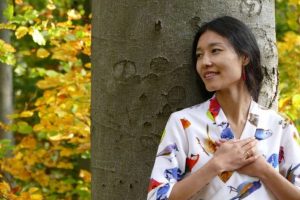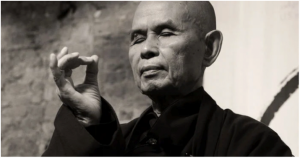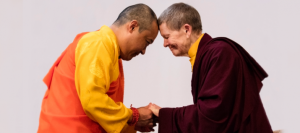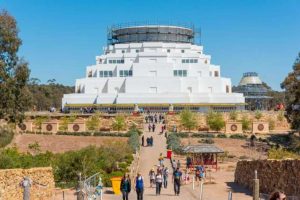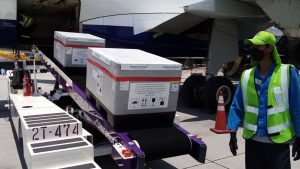
The Kwan Um School of Zen, an international network of Zen Buddhist centers founded by Zen Master Seung Sahn (1927–2004), will host a three-day climate summit later this month titled “Spirit of Hope.” The summit will be held online from 19–21 April, with speakers joining from Australia, Hong Kong, Malaysia, South Korea, and the United States.
According to the summit website:
Last year was the warmest of late, and likely the hottest in 100,000 years. Although we are bombarded daily by dire climate-related headlines and smartphone alerts, we don’t need news stories and scientific studies to see what is happening to our home planet. We experience warmer winters, endless heat spells, devastating floods, fires, and drought.
Whatever tradition we connect with, we aspire to connect our spiritual practice with a path of global healing. We look to the Dharma (Buddhist teachings) as a refuge, not an escape. Zen Master Seung Sahn (1927-2004) once wrote that all forms of Buddhism share the same goal: “How do we wake up and help this world right now?”
In the spirit of that question, please join us for a three-day virtual gathering focused on the intersection of Dharma and the climate crisis. Insights will be offered by leading Buddhist teachers and practitioners who are also writers, artists, and advocates engaged in climate action. There will be opportunities to meet and talk with other concerned individuals worldwide. Together, we can support and encourage earth-centered activity and creativity within and beyond our personal lives and communities.
(Kwan Um Zen Online)

Day one of the summit is titled “Inspiring Hope, Wisdom, and Compassion.” The welcoming address will be by Myong An Sunim of Penang, Malaysia. This will be followed by chanting for the Earth led by Kwan Haeng Sunim and the Providence Zen Center. Next, there will be speeches from Zen Master Dae Bong from South Korea and the poet Jane Hirshfield of the United States. Finally, photographers John Feely and Dan Dill will present works on nature, stillness, and tranquility.
On day two, the summit will consist of facilitated conversations about climate change, one at a time that should be convenient to most people from Australia, Asia, Africa, and Europe. And a second one later in the day for people in the Americas.
The third day will begin with a panel discussion featuring David Loy, Zen teacher, author, trainer, and activist; Nancy Hedgpeth, Kwan Um Zen teacher and local climate activist; John Sabin, the Great Lakes regional co-coordinator for Citizens’ Climate Lobby (CCL); and So Young Lee, filmmaker, storyteller, and organic farmer, moderated by Wen Stephenson, journalist and author of What We’re Fighting for Now is Each Other: Dispatches From the Front Lines of Climate Justice (Beacon, 2015).
The Kwan Um School of Zen was founded in 1983 and is headquartered in Providence, Rhode Island. The school blends aspects of Seung Sahn’s Korean Buddhism with Japanese Rinzai Zen, with elements from Huayan and Pure Land Buddhism also incorporated. In his 2006 book Zen Master Who? (Wisdom Publications), James Ishmael Ford noted, “The Kwan Um School is now the single largest unified Zen School operating in the West.” (107)
The summit is free to all and registration can be found on the event webpage.
References
Ford, James Ishmael. 2006. Zen Master Who? Somerville, MA: Wisdom Publications.
See more
Spirit of Hope (Kwan Um Zen Online)
The Kwan Um School of Zen
Related news reports from BDG
Engaged Buddhism: 20th Biennial INEB Conference Concludes in South Korea with a Commitment to Action, Peace, and Change
Theravada Buddhists Celebrate the Beginning of Rains Retreat
Buddhists Discuss Self-Immolation and Protest after Climate Activist’s Death
Dalai Lama, Greta Thunberg, and Scientists to Discuss Crisis of Climate Feedback Loops
Buddhist Teacher David Loy Briefly Detained in Denver During Climate Protests
Related features from BDG
One Earth Sangha: Celebrating 10 Years of EcoDharma
Crystal Mountain and the Wheel of Protection
How Buddhists Can Embrace the Degrowth Movement
Personal Action to Mitigate the Climate Crisis
Buddhist Voices in the Climate Crisis: Welcome to the Anthropocene
Buddhistdoor View: A New Relationship with Nature




